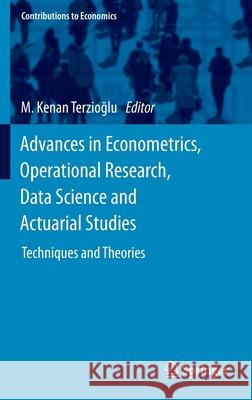Advances in Econometrics, Operational Research, Data Science and Actuarial Studies: Techniques and Theories » książka
topmenu
Advances in Econometrics, Operational Research, Data Science and Actuarial Studies: Techniques and Theories
ISBN-13: 9783030852535 / Angielski / Twarda / 2022 / 330 str.
Advances in Econometrics, Operational Research, Data Science and Actuarial Studies: Techniques and Theories
ISBN-13: 9783030852535 / Angielski / Twarda / 2022 / 330 str.
cena 726,29
(netto: 691,70 VAT: 5%)
Najniższa cena z 30 dni: 655,41
(netto: 691,70 VAT: 5%)
Najniższa cena z 30 dni: 655,41
Termin realizacji zamówienia:
ok. 22 dni roboczych
Dostawa w 2026 r.
ok. 22 dni roboczych
Dostawa w 2026 r.
Darmowa dostawa!
Kategorie:
Kategorie BISAC:
Wydawca:
Springer
Seria wydawnicza:
Język:
Angielski
ISBN-13:
9783030852535
Rok wydania:
2022
Wydanie:
2022
Numer serii:
000036348
Ilość stron:
330
Waga:
1.04 kg
Wymiary:
23.39 x 15.6 x 3.33
Oprawa:
Twarda
Wolumenów:
01
Dodatkowe informacje:
Wydanie ilustrowane











